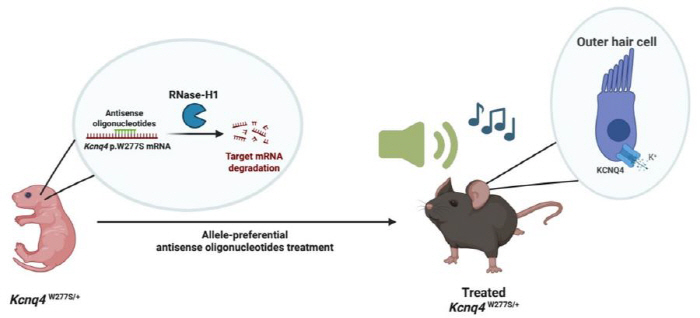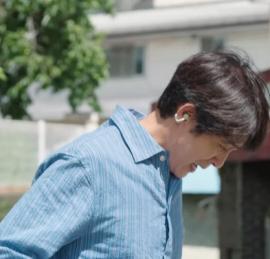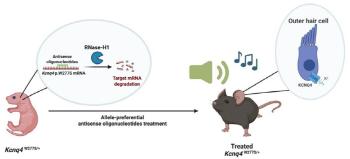For the first time in the world, the effectiveness of acquired hereditary hearing loss treatment has been confirmed...Discovery of improved hearing
Nov 14, 2025
|
On the 11th, a research team led by Professor Ji Heon-young, Professor Jang Seung-hyun of Yonsei University's Pharmacology Class, and Professor Bok Jin-woong of the Anatomy Class confirmed the hearing improvement of acquired genetic hearing loss using drugs that inhibit allele expression.
The findings were published in the international journal Molecular Therapy (IF12).
One of the major causes of hearing loss is genetic variation.
The research team confirmed that hereditary hearing loss (DFNA2) caused by the KCNQ4 gene mutation is the most common cause of autosomal dominant hearing loss seen by Koreans through dielectric analysis of the Yonsei University Hearing Loss cohort established with professors Choi Jae-young and Jeong Jin-se of Severance Hospital. Currently, there are no biological agents available to treat DFNA2, and they only rely on rehabilitation with auditory implants.
The research team discovered a treatment to improve hearing loss in DFNA2. Therapeutic agents are antisense oligonucleotides, which are strategies for inhibiting the expression of mutated alleles.
In the representative KCNQ4 gene mutation 'c.827G>C', even if only one of the two genes received from parents is mutated, the mutated protein made by the mutated gene interferes with the function of the normal protein, resulting in hearing loss.
The antisense oligonucleotide developed by the research team combines messenger RNA made by mutant alleles among KCNQ4 genes. This may inhibit the expression of mutant proteins. This is the principle that mutated proteins are no longer produced as drugs are broken down by binding to messenger RNA containing mutant genetic information.
The research team confirmed that hearing improved by 15~20dB when an antisense oligonucleotide was injected into the inner ear of a mouse that induced the KCNQ4 gene mutation. In addition, we also found improvements in electrophysiological function, along with the survival rate of extracorporeal hair cells present in the inner ear. In addition, these treatment strategies did not cause significant side effects such as severe immune responses.
Professor Ji Heon-young confirmed for the first time in the world that an antisense oligonucleotide treatment that inhibits allele expression, which was applied little in the inner ear, can be used as an effective treatment for hereditary hearing loss through animal experiments"By presenting the inner ear distribution and reactive characteristics of the treatment, we provided essential information to research teams who want to use the treatment in the future."
|
This article was translated by Naver AI translator.















